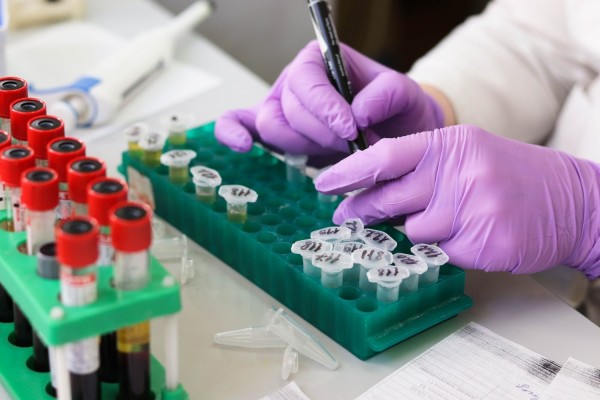Potential COVID-19 Vaccine from University of Oxford Could Activate One's Immune Response

Those who are injected with the vaccine candidate, ChAdOx1 nCoV-19, reports said, 'Made antibodies and immune cells' against COVID-19.
The University of Oxford recently announced a collaboration with pharmaceutical firm AstraZeneca to develop a vaccine that is safe and could activate an immune response against COVID-19.
According to reports, those who are injected with this vaccine candidate, called ChAdOx1 nCoV-19, made antibodies and immune cells against COVID-19.
In tests, there were no major side effects found, although 70 percent of those observed had headaches or fever, which they could manage with painkillers.
It remains unclear how ChAdOx1 nCoV-19 protects one from the spread of COVID-19, and it is unknown too if it can prevent people from getting infected with the said virus until results for more extensive tests are seen.
Such tests would involve about 10,000 people in the United Kingdom, 30,000 in the United States, 5,000 in Brazil, and 2,000 in South Africa.
ALSO READ: 20-Minute COVID-19 Blood Test Devised, Australian Researchers Announce
100 Million Doses of ChAdOx1 nCoV-19 in the UK
According to reports, the government in the UK has acquired access to roughly 100 million doses of ChAdOx1 nCoV-19, on top of the 90 million doses of other vaccine candidates for COVID-19 from various European and US firms.
Currently, companies all over the world are developing over 140 COVID-19 vaccines, with 23 candidates being tested in people.
The said study, published in the journal The Lancet, found that ChAdOx1 nCoV-19 exhibited an admissible safety characteristic, and potential to boost increased antibody reactions.
These outcomes back large-scale assessments of this vaccine candidate in what the research specified as an ongoing phase-3 program.
Phased Trials
In a statement, Oxford study's lead author Andrew Pollard said, "We hope this means the immune system will remember the virus," saying that the vaccine would keep people protected from an extended period.
Specifically, the test, as part of the Phase 2 testing of Oxford, did not appear at, if the said vaccine candidate shields against COVID-19 contagion.
This question then, the statement indicated, will be addressed in the Phase tests that have already started.
Essentially, the vaccine initiative's fast pace has been cheered by global leaders. However, health experts caution that much stays unknown about this particular virus, and more tests are needed to fully understand how to provide people with long-term protection against the pandemic.
DON'T MISS THIS: Can Interferons, the Frontline Protectors of the Body, Beat COVID-19?
More Studies Needed
Pollard also seed, there is a need for more research before confirming that ChAdOx1 nCoV-19 is indeed, effectively protecting people from the COVID-19 infection, not to mention the duration such protection lasts.
Involved in Phase 2 of the Oxford tests were roughly 1,000 subjects aged between 18 and 55 years. About 50 percent of them would receive the observational vaccine.
According to scientists, immunity was identified in respondents for at least 56 days after they received the shot. However, the researchers explained further that trials are required to figure out how long the protection will last after a particular period.
Notably, the vaccine candidate on trial was presented too, to lead to only minor side effects, which include fatigue, headaches, and fever. As for the duration of the Phase 3 trials, it is according to the degree of transmission rate in the country the experimental vaccine is being tested.
Oxford researchers have claimed that if the rate stays high, they can get adequate data in several months to find out if the vaccine is effective.
However, if there is a drop in transmission, it could then take up to six months.
IN CASE YOU MISSED THIS: This COVID-19 Vaccine Has Been Effective on Every Volunteer, Says Moderna
Jul 21, 2020 07:00 AM EDT





